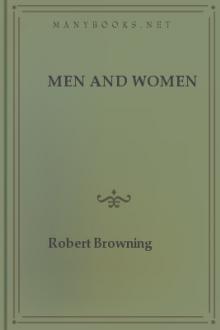author - "Robert Browning"

ty wheresoever in life itchooses to turn the light of its gaze. So, also, in "Andrea delSarto," the easy cleverness of the unaspiring craftsman is notembodied apart from the abject relationship which made his very soula bond- slave to the gross mandates of "the Cousin's whistle." Yetin all three poems the biographic and historic conditions
contributing toward the individualizing of each artist are sounobtrusively epitomized and vitally blended, that, while scarcelyany item of specific study of the art and artists of the Renaissancewould be out of place in illustrating the essential truth of theportraiture and assisting in the better appreciation of the poem,there is no detail of the workmanship which does not fall into thebackground as a mere accessory to the dominant figure through whoserelationship to his art his station in the past is made clear.
This sort of dramatic synthesis of a salient, historical epoch isagain strikingly disclosed in the following poem of the Renaissanceperiod

ty wheresoever in life itchooses to turn the light of its gaze. So, also, in "Andrea delSarto," the easy cleverness of the unaspiring craftsman is notembodied apart from the abject relationship which made his very soula bond- slave to the gross mandates of "the Cousin's whistle." Yetin all three poems the biographic and historic conditions
contributing toward the individualizing of each artist are sounobtrusively epitomized and vitally blended, that, while scarcelyany item of specific study of the art and artists of the Renaissancewould be out of place in illustrating the essential truth of theportraiture and assisting in the better appreciation of the poem,there is no detail of the workmanship which does not fall into thebackground as a mere accessory to the dominant figure through whoserelationship to his art his station in the past is made clear.
This sort of dramatic synthesis of a salient, historical epoch isagain strikingly disclosed in the following poem of the Renaissanceperiod